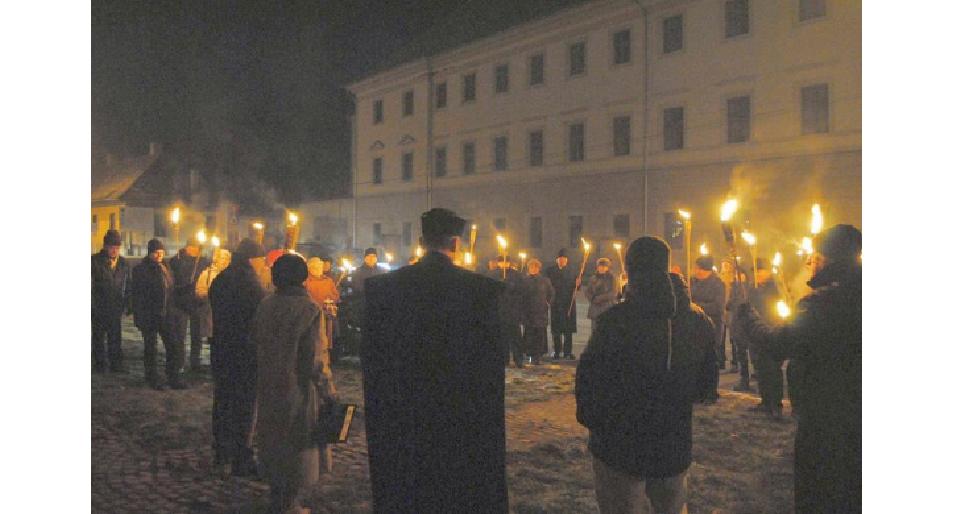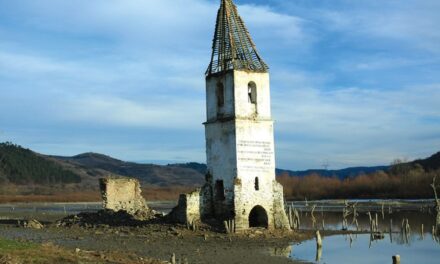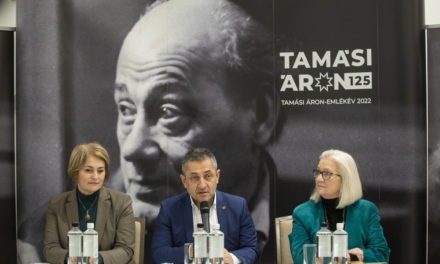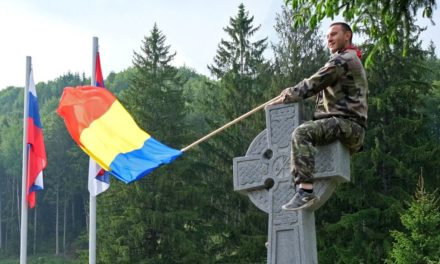Yesterday evening, the Hungarians of Nagyenied, Romania, remembered the massacre of the Romanian insurgents in January 1849. The event was also attended by the Romanian mayor of the city.
The participants of the commemoration gathered in the courtyard of Gábor Bethlen College, where the school chaplain István Demeter Szabolcs gave a homily. He pointed out with a biblical example: Jerusalem, like your Grandmother, was burned and its people slaughtered. However, God told his inhabitants to build houses and live in them, take care of the garden and multiply. "Let's not give up hope, but let's put down roots and live on this land, which we inherited from our ancestors, even if they see us as strangers," he interpreted the message of the word.
Gyula Kálmán Szőcs, the town's honorary citizen and supporter of the college, recalled that although the town's population always remembered the massacre, a torchlight parade has been organized for five years. "We have to go outside the walls, we have to show ourselves in the city," he said. It is important for them to get to know the Hungarians of Nagyenyed, he said, because, as he said, "those who don't know are afraid", and those who are afraid can also be aggressive.
In his speech, the Romanian mayor of the city, Oana Badea, believed that all of us - regardless of nationality - are capable of approaching history with understanding. "I have been with you at this event for quite a few years now, and I do so with the belief that this is the way to build the future. If we understand each other, if we give all cultures and traditions a chance to express themselves," said the leader.
Badea pointed out that history is not easy, it is not fair, but it is also not unjust, and it is the moral duty of those living in the present to build a better future. The people of Nagyenyed do just that when they commemorate each year on January 8, he said.
According to Deputy Mayor Helga Lőrincz, what is really important is what happens every day, because "we write history every day". "Here, we Hungarians and Romanians make Nagyenyed beautiful, colorful and interesting together," he declared, and thanked the mayor for the joint work.
He emphasized: although Nagyenyed is cited as a good example of Romanian-Hungarian coexistence, this was not always the case. Hungarians were able to forgive, but they will not forget the tragic events, because then they would become rootless, he added. "People live very peacefully and calmly," declared the head of the RMDSZ, wishing that this would remain so for a very long time.
Ildikó Szőcs, director of Bethlen Gábor College, said: They want to remember Enye so that they can act in the present by learning from the past. He said that it is good to remember together, because then you can experience that "we have things in common". "We have things in common here, in this landscape, in this city, where we can live well, even though we are in the minority," he added.
After the speeches, those present placed flowers at the martyrs' memorial, then marched with torches to the student memorial on the promenade, which was also wreathed. Csaba Árpád Ladányi, president of the RMDSZ Fehér county organization, gave a short speech here. The participants of the torchlight procession then returned to the main square of the city, and after the blessing of the representatives of the Hungarian historical churches, they placed the wreaths of remembrance at the plaque on the castle wall.
In Nagyenyed, which is classified as scattered with a 15 percent Hungarian population, the carnage committed on January 8, 1849 and in the following days is commemorated every year. At that time, the troops of the Romanian leader Axente Sever attacked and looted the city, which was left without military protection, and killed a significant part of the local Hungarians. The carnage continued in other Hungarian-inhabited settlements of Fehér County.
Source: Magyar Hírlap
Image: Szabadsag.ro












